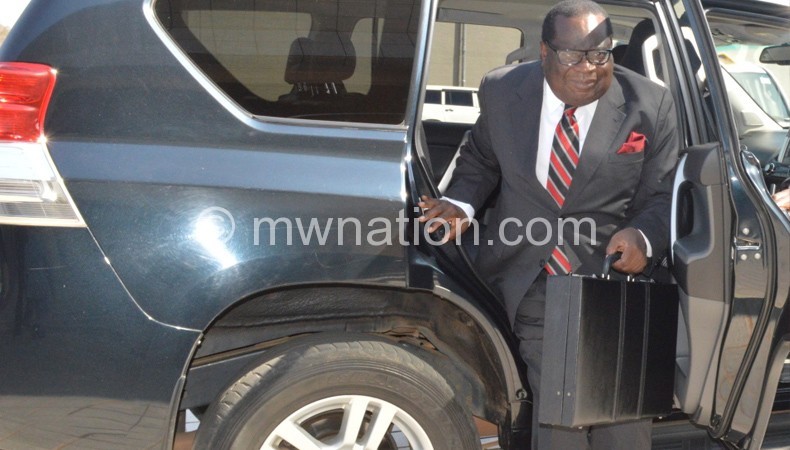Goodall eyes more expenditure cuts
Minister of Finance and Economic Planning and Development Goodall Gondwe has said government will scale down expenditure during the second half of the 2016/17 financial year.
He said the move follows low disbursement of grants from development partners and maturing of interest free bonds which will have to be paid out.

cut expenditure
Meanwhile, Gondwe is expected to present the 2016/17 Mid-Term Budget Statement on Friday, February 17 2017.
However, he could not be drawn to disclose the specific sectors that are likely to suffer the cuts.
Speaking in an exclusive interview with The Nation yesterday, Gondwe said there is a need to scale down expenditure to match with the available resources, also disclosing that so far, only K23 billion grants have been disbursed out of the expected K103 billion in the 2016/17 financial year.
While domestic revenue collection has been beyond targets between June and December 31 2016, the minister expressed worry, saying poor fiscal discipline remains a challenge across the public service, a development which is working against the gains in the macro-economy.
“Half yearly we have done well, but we will need to be scaling down our total expenditure so as to match up with the available resources. The only problem we have is that the question of arrears is catching up with us now because we issued interest free bonds, now they are maturing and we will have to replace them with interest bearing securities. That will add to the expenditures,” Gondwe said.
Adding to Gondwe’s headache to balance the 2016/17 budget are the fringe benefits which he did not plan for. Among them, the purchase of state-of-the-art vehicles for new commissioners of the Malawi Electoral Commission as well as paying out K2 billion gratuity to members of Parliament at a time when the economy is struggling.
“In future, we need a lot of fiscal discipline throughout the system. We may have to look again at fringe benefits in the government. Some of them just came out without any discussion, without any approval. We have to look at those and streamline them,” he said.
Gondwe said the fringe benefits such as vehicles and allowances in the civil service contribute to wastage in government. The Ministry of Finance has since hired a consultant to carry out an assessment of the extent of wastage, especially on vehicles.
So far, only K23 billion grants have been disbursed out of the expected K103 billion in the 2016/17 financial year.
Gondwe had projected an ambitious 45.5 percent increase in grants compared to the 2015/16 revised budget provision, but there is a high likelihood that this will not be realised.
The government also expects $80 million (about K60 billion) from the World Bank after the institution’s vice-president for Africa Makhtar Diop expressed confidence in the success of the public finance management reforms which are a prerequisite for obtaining the support.
Gondwe also disclosed that during the past six months, government has reduced fiscal deficit by one percentage point from 3.9 percent in the 2015/16 financial year.
“We are optimistic things will work out well. We are beginning to see some turnaround of the economy as industrial capacity has increased from 58 percent to 70 percent and we think the exchange rate has stabilised a little, inflation is not going up as the season made us expect and the revenues are responding well,” he said.
Gondwe also touted reduced domestic borrowing for which the International Monetary Fund had given a threshold of K65 billion for 2016/17, but the government borrowed K25 billion by December 31 2016.
“If we can continue like this up to June, we should be okay,” he said.
When asked on expected areas which will enjoy increases, Gondwe said he would “do something” about civil servants salaries, but it may not be as much as they would demand.
Meanwhile, economic commentators have cautioned government not to get excited with the positive economic outlook in the first half of the financial year.
Malawi Economic Justice Network (Mejn) conducted a public expenditure tracking survey in several districts which established that contrary to the positive economic outlook being touted by the government, this was not trickling down to ordinary Malawians.





